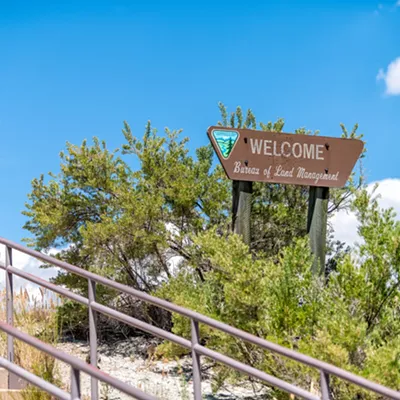Uncle Sam is Watching -- PULLMAN - Starting this week, foreign exchange students at Washington State University will be subject to mandatory on-line tracking.
WSU has more than 1,000 foreign students, from more than 100 countries, which makes tracking difficult, university officials say. Mary Furnari, assistant director of International Students and Scholars Services at WSU, says the new system is technologically challenging and incredibly expensive.
Furnari says only a small percentage of foreigners in this country who are not seeking citizenship are students: "U.S. colleges and universities will have to spend a lot of money to monitor a small population of people."
The U.S. government has long required educational institutions to track foreign students, but the system was paper-based and caused coordination problems between government and school officials.
In 1996, the government asked the INS to develop an electronic system to track foreign students. The result is SEVIS, an Internet-based system that requires universities to report to the INS any changes in address, employment, academic pursuits and enrollment status. Failure to comply could result in the loss of WSU's right to admit foreign students. Some educators are worried SEVIS will deter foreign students from studying in the U.S.
Furnari says that while the United States is beefing up its surveillance, Canada, the U.K. and Australia have lowered immigration requirements. While Furnari admits SEVIS offers benefits, like quicker visa approvals, she says the negatives outweigh them.
"The perception by foreign students of how they are being treated could be a downside," she says. "SEVIS can make us look like an enforcer."
Follow the Leaders -- SPOKANE - Finally, a forum designated for business leadership, not just quick tips for profits and returns. Spokane City Forum's latest presentation, "Whatever Happened to Business Leadership?" challenges all the negativity about Spokane's economy.
Businessman and community activist Chris Marr will speak Wednesday on how effective business leadership can forge a more positive overall community. Marr, the managing partner of Foothills Auto Group, is also the Chairman of the Spokane Regional Chamber of Commerce.
Marr is apt to address these issues, being a longtime board member on more than six local and regional organizations, including the Board of Regents of Washington State University.
"I wanted to offer my perspective and convey how many things are on the horizon for Spokane," Marr says. "I want to decry the negativism we hear so often. We as a business community are responsible for creating a vision."
Marr believes civic leadership is crucial to business leadership. His business operates five dealerships and a service center in the Spokane area, generating $60 million in annual sales.
Marr's talk will be held at the First Presbyterian Church, 318 S. Cedar St., on Wednesday, Feb. 19, at 11:45 am. For reservations and more information call: 777-1555.
A Plan For Spokane -- SPOKANE - Downtown isn't the only area in Spokane getting revitalized. "Centers and Corridors" is a program designed to protect neighborhoods subject to economic stagnation. The program is a part of the larger Comprehensive Plan created to thoroughly evaluate land-use issues.
Leroy Eadie, program manager of "Centers and Corridors," says that the planning strategies focus on improving both large and small districts, keeping the city vital in all areas.
"It's important we're diversifying our economic development so we're not just looking downtown" Eadie says.
"Centers and Corridors" kicked off last January with four pilots: the Hillyard/N. Market Street Corridor, the Ninth and Perry Neighborhood Center, the Broadway and Maple Neighborhood Center and the Holy Family Employment Center. Eadie says the pilots have been learning experiences.
"There are still things we're working on. We're continuing to build momentum in the areas. We're trying to get our leaders interested. We've tried to look at short-term projects that are doable, fundable," Eadie says. So far, funding has been the biggest challenge.
Hillyard was recently designated a historic district, allowing the area more options to fund development. Eadie says some neighborhoods may find they can use taxes, but others will need to be more resourceful.
"If the City Council could free up money for this project, we'd see big changes," Eadie says. "Even just $100,000 would help with planning."
Publication date: 02/13/03


















